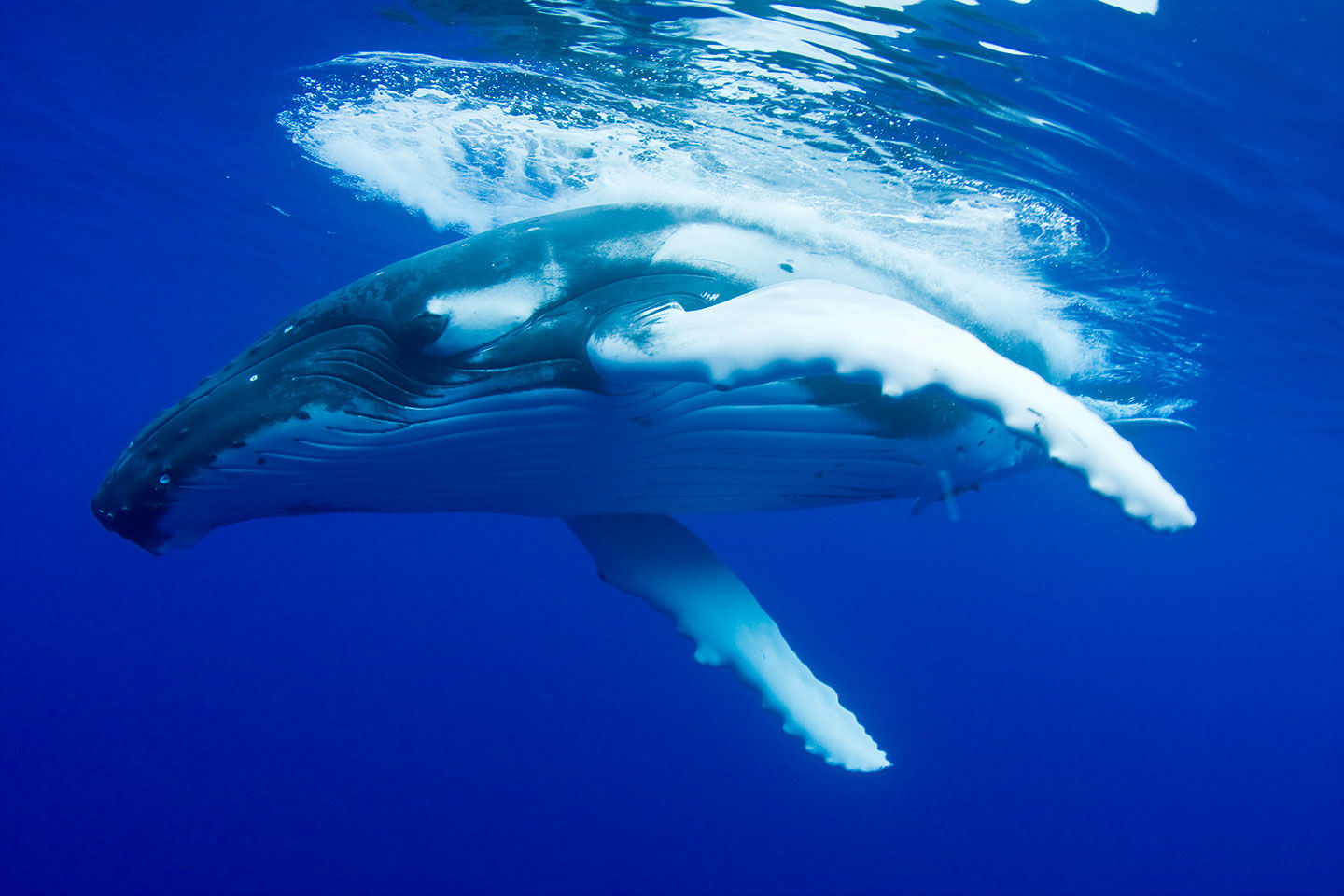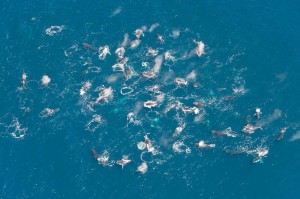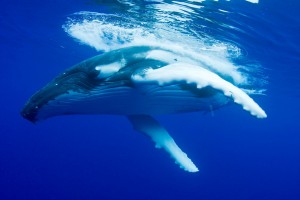Some crowds we’ve come to expect: the shopping mall at Christmastime, your voting precinct when it’s a presidential election, middle-school girls, well, anywhere.
But humpback whales swarming in one place? Not so much, say whale researchers. But that’s exactly what a group of southern hemisphere humpbacks, or Megaptera novaeangliae — usually not known as social animals — have been doing off South Africa.
According to research published in the journal PLOS One, scientists from the Cape Peninsula University of Technology in Cape Town, South Africa, note that while the baleen whales typically prefer to remain solo or gather in small groups, since 2011, large swarms of whales — in groups numbering from 20 to up to 200 individuals — have been found in the waters off South Africa. Lead study author Professor Ken Findlay and his team reported seeing 22 instances of the large groups on three different occasions in 2011, 2014, and 2015. They determined the whales were feeding, but remain puzzled why they aggregated in such large numbers.
“The recent observations of this novel and intense feeding behavior is of particular interest in light of rapidly recovering humpback populations on both the east and west coasts of southern Africa and in the associated Southern Ocean region,” say the researchers.
The time of year when the whales were observed — October and November — also perplexed the researchers. That’s because the mammals typically spend these late summer months (in the Southern Hemisphere), feeding in Antarctic waters before heading back to warmer South African waters during winter, to breed and give birth. In PLOS One, the researchers outlined some of the reasons behind the change in the mammals’ behavior:
• alterations in prey availability leading to a novel feeding strategy; • increasing humpback whale abundance intensifying pressure on prey availability elsewhere and a consequential switch in feeding strategies or areas;
• a restoration of a previously unobserved feeding strategy as the population abundances re-establish; or
• an increase in the probability of detection of “super-group” behavior as the population abundance increases.
Source Sport Diver







